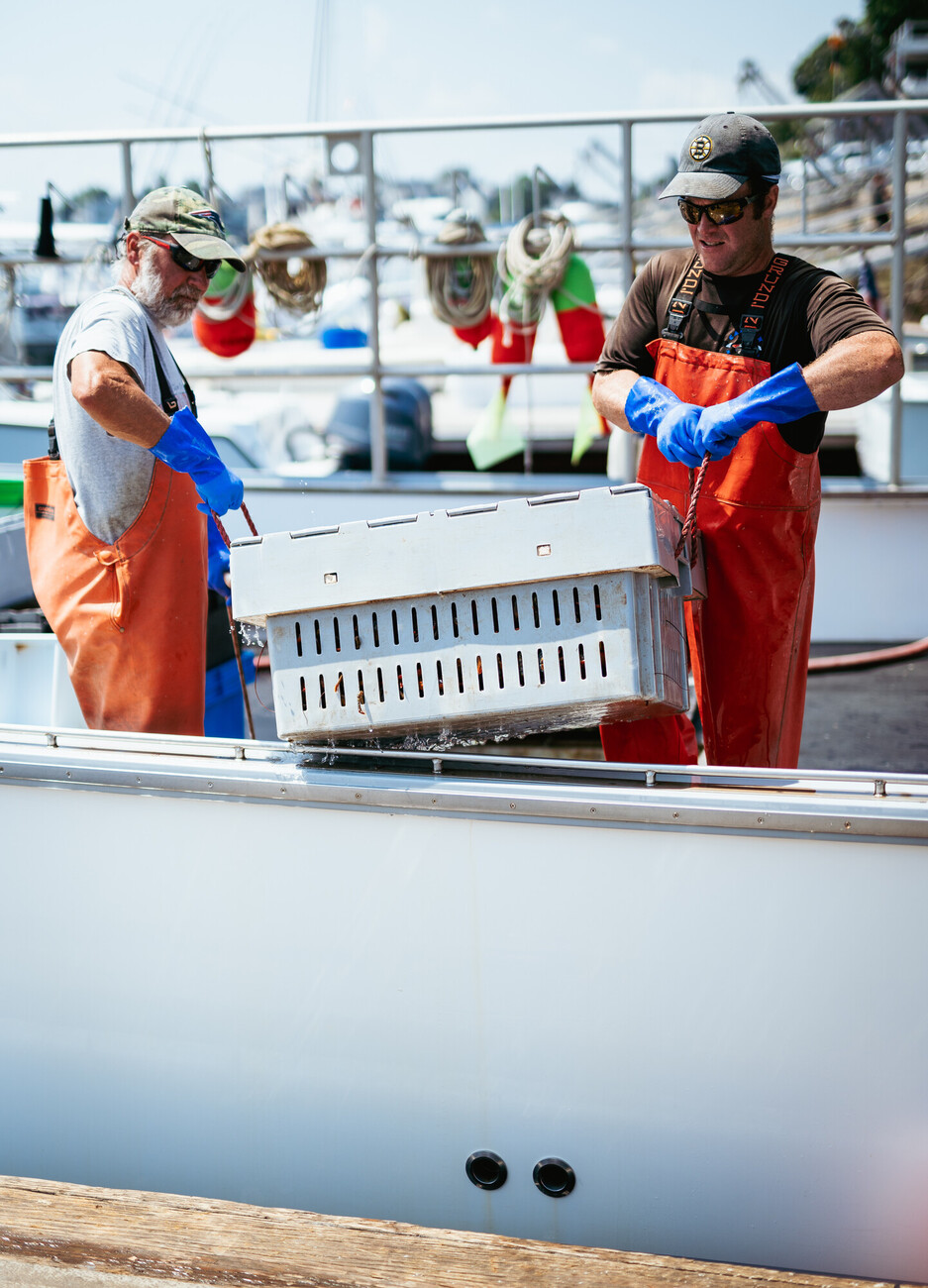In a town where the fishing and seafood industry are pillars, restrictions for lobstermen have caused a growing frustration.
Beth Casoni was promoted to executive director of the Massachusetts Lobstermen’s Association on July 1, 2014. Less than a week earlier, North American right whale enclosure policies took effect in New England. It is safe to say Casoni has been at the forefront of this controversial legislation since the beginning, and so has Marblehead.
These federal policies introduced by Congress include equipment, time, and location restrictions with the goal of preserving the endangered whale species. The concern is that the endangered right whale, of which there are approximately 340 remaining, could perish in entanglements and other events caused by traps intended for lobster fishing. Casoni explained how the Marblehead lobster-fishing community has been just as affected as any.
“A lot of our members fish out of Marblehead and they’re all under the same rules that anyone who would be fishing in the lobster fishery in the gulf of Maine,” Casoni said. “Currently, Massachusetts is fishing under the most draconian conservation measures anywhere. They are held to a standard that affords the right whales protection that no other area in the United States gives them.”
Casoni explained that the closure space currently stretches 11,000 square miles, and vertical fishing lines are restricted within it. She said there is a specific time of the year when they are more prominent than others. However, lobstermen are required to follow these policies throughout the entire year. Casoni said that her association has done its due diligence to determine when right whales are most common and how to keep them safe while lobstermen do their jobs.
“At any one time in the months of February, March, and April we could have upwards of 200 right whales,” Casoni said. “We don’t try to deny the presence of right whales, but we also try to encourage smart management. We work closely with our division of marine fisheries and we’ve implemented a lot of conservation matters over the last nine years that afford the right whales the most protection anywhere possible in the United States.”
One effort the association has put forth is the development of “weak rope,” which is designed for the right whale to be able to escape in the event they get caught in a net meant for lobster-catching.
Jay Michaud said he has never seen a right whale in “all the years he’s been on this planet.” The Marblehead Harbors and Waters Board member is also a commercial lobster fisherman along with his wife, Susan. Michaud feels that lobstermen have been asked to sacrifice too much, as opposed to a potential compromise between lobstermen and conservationists.
“When it comes to the ‘whale crisis,’ seems like so far, we, the American fixed-gear lobster fishermen, are the only ones who are asked, and/or directed, to give,” Michaud asserted. “Strange, isn’t it, we’ve become the endangered species, drowning by the entanglement of regulations that will never end. With all these ‘solutions’ to a problem that may not even exist, how about we begin to receive something in return?”
Michaud feels lobstermen are doing beyond what is being asked of them, and their ability to make a living has become increasingly difficult. Massachusetts is the only state that mandates a shutdown of lobster fishing from Feb. 1 through May 15.
Lobstermen are not the only trade with members who say they have been affected by the policies. Katie Thompson, manager of Little Harbor Lobster Company, provided an example of how the policies have made running the seafood market more complicated during the shutdown period.
“There’s a demand in lobster, and you can’t physically get it,” Thompson said. “Then you have to get it from Maine, and Maine is a whole different story. This year we couldn’t get it from Maine so we got it from Canada and that jacked up the price. So it’s super expensive for us as well as the customers.”
The Massachusetts Lobstermen’s Association recently made progress in its fight to lift these restrictions. In June, a federal judge ruled that the government used “pessimistic assumptions” when it put the regulations in place.
“The agency was taking the worst case scenario and implementing management to that when the worst case scenario was not required,” Casoni explained. “If we all had to live by the worst case scenario, we wouldn’t leave our houses.”
With this victory, the lobster-fishing community hopes new regulations will be developed that do not impede its industry as much.

